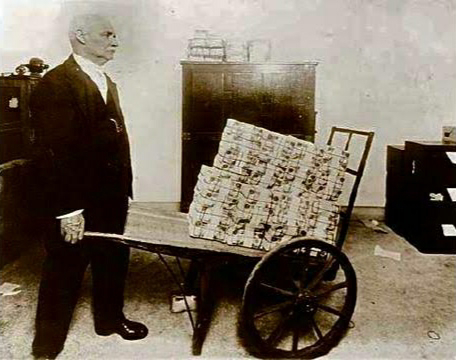The Effects of First World War on Weimar Republic Germany and Europe
The war had a devastating impact on the entire continent both psychologically and financially. From a continent of creditors, Europe turned into one of debtors. Unfortunately, the infant Weimar Republic was being made to pay for the sins of the old empire. The republic carried the burden of war guilt and national humiliation and was financially crippled by being forced to pay compensation. Those who supported the Weimar Republic, mainly Socialists, Catholics and Democrats, became easy targets of attack in the conservative nationalist circles. They were mockingly called the November criminals. This mindset had a major impact on the political developments of the early 1930s, as we will soon see.
The First World War left a deep imprint on European society and polity. "Soldiers came to be placed above civilians. Politicians and publicists laid great stress on the need for men to be aggressive, strong and masculine. The media glorified trench life. The truth, however, was that soldiers lived miserable lives in these trenches, trapped with rats feeding on corpses. They faced poisonous gas and enemy shelling, and witnessed their ranks reduce rapidly". Aggressive war propaganda and national honour occupied centre stage in the public sphere, while popular support grew for conservative dictatorships that had recently come into being. Democracy was indeed a young and fragile idea, which could not survive the instabilities of interwar Europe.




Comments
Post a Comment